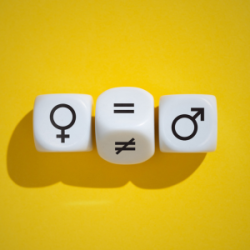
Part 2 of When Equity Evokes Rage
Welcome Readers! Please subscribe to Social Jesus Here.
(Read this series from its beginning here.)
Luke’s sermon on the plain alongside Gomes’ wise observations have grave implications for how we think about the gospel. When the church defines the gospel as a ticket to heaven rather than restoring justice (heaven) here and now on earth (as it is in heaven), then Gomes’ assessment squarely hits the mark. While the oppressed masses heard Jesus’ gospel as good news, those in positions of power in the story (Herod, Caiaphas, Pilate, etc.) heard his teachings as a threat.
This is why our reading this week blesses those the present system causes to be hungry, poor, to weep, or hated. God’s just future is specifically for them. But those the present system makes rich through making others poor or well-fed from making others hungry, who laugh while making others weep, and are spoken well of, these people are not referred to as blessed but as “cursed.”
Those who have experienced special favor, privilege, and exceptionalism at the expense of others will interpret diversity, equity and inclusion as negatives to be resisted and removed rather than as positives. They will see justice and reparations as a curse. The equity we find I in the synoptic gospels is more than simply giving people equal access to compete on level ground where in the end you still will have a winner and loser. The equity of the gospels envisions a world where there are no more losers. Where cooperation has replaced competittion and our survival comes through our working together. The equity Jesus calls for in the gospels meant lifting certain ones up while bringing certain other ones back down, so that the first and the last are now the same. (The first shall be last and the last shall be first.)
I also appreciate the way that being hated is singled out in our reading this week. To be clear, being hated is not a sign that you’re on the right path. You have to ask yourself who is doing the hating. If those at the center of society, the upper elites, hate you, then you might be in the same story as our passage this week. It makes a huge difference if those privileged by society feel threatened by your solidarity and work toward justice, and so seek to exclude, insult, and reject you while warning others that you’re evil. Who is it that is threatened by you? Social location matters. Being spoken well of by the marginalized alongside whom you’re working while being hated by the powerful who have something to lose is quite different from being spoken ill of by the marginalized and praised by the powerful and securely located.
So what does this mean for us today? We’ll look at that next.
(Read Part 3)
There are implications here for us at this moment. We’ll explore those in Part 2.
Are you receiving all of RHM’s free resources each week?
Begin each day being inspired toward love, compassion, justice and action. Free.
Sign up at HERE.















